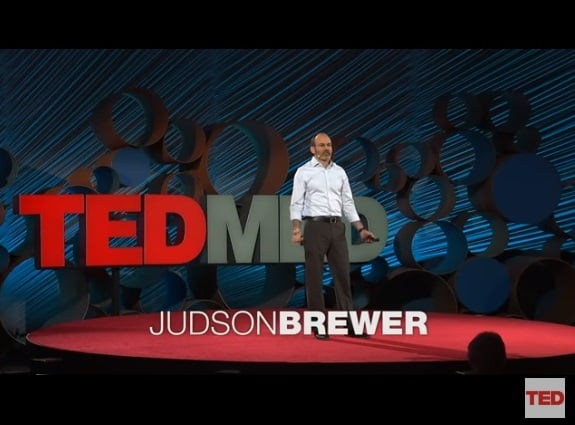How Does Paying Attention Help Us Quit Smoking?
 What is going on here? Mindfulness is about helping people pay attention to every aspect of smoking. My patients come to me wanting to quit smoking (and in our study, on average, failed 5-6 times before). They know cognitively that they need to quit smoking, but something keeps them coming back for more. They’ve reinforced the habit literally thousands of times. Each time they smoke, they get that dopamine hit, that reward signal in their brain that says, “do it again.” So they do.
What is going on here? Mindfulness is about helping people pay attention to every aspect of smoking. My patients come to me wanting to quit smoking (and in our study, on average, failed 5-6 times before). They know cognitively that they need to quit smoking, but something keeps them coming back for more. They’ve reinforced the habit literally thousands of times. Each time they smoke, they get that dopamine hit, that reward signal in their brain that says, “do it again.” So they do.
But they aren’t looking at all of the rewards. And by this, I mean what the cigarette actually tastes like in their mouth. It's the same feeling as the superheated smoke feels like in their lungs, and so on. When they really truly pay attention, right in that moment of smoking, they get a clearer picture. Oh, this isn’t as great as I thought. Their reward-based learning system gets updated.
One of the smokers using our mindfulness app (Craving to Quit), wrote. “Mindful smoking: smells like stinky cheese and tastes like chemicals. YUCK!” Right in that moment, her brain learned something: smoking isn’t as great as I remembered. And she couldn’t ‘unlearn’ that. Why? Because it wasn’t something she learned in a book or heard from her doctor. She knew it in her bones.
This is a great example of moving from knowledge to wisdom. Knowing something in our head (smoking is bad for me) to knowing it in our bones (this doesn’t taste good). And this is what mindfulness is all about –simply seeing our actions and the resultant ‘rewards’ clearly. Mindfulness taps into the very learning process that has gotten us hooked on smoking, to break the habit. Reward-based learning is based on rewards. When we see those rewards very clearly –and they aren’t as rewarding as we remembered – we become wiser. To learn more about how mindfulness works to change habits, take a look at my 10-minute TED talk. It used smoking and overeating as examples.

Video: A simple way to break a bad habit
How can tobacco treatment specialists and other clinicians help people hack their own reward-based learning to quit smoking? First, they can help people simply pay attention when they smoke. Yes, that means putting away the cellphones and other distractions and really paying attention to all aspects of smoking. Second, in an effort led by Dr. Lori Pbert, UMass Chan Medical School received a tobacco settlement grant. The grant includes funds for my lab to give Craving to Quit app to smokers in Massachusetts free of charge. We'll test how best to engage smokers in the program. The app-based program uses videos, animations and in-the-moment exercises to help smokers hack their brains to quit smoking for good. Tobacco Treatment Specialists in Massachusetts can use this program as an extra tool for coaching and supporting smokers. Treatment specialists or clinicians can contact Hanif.benoit@umassmed.edu to get free access to the program. They'll get more information on how to use the app as they help coach smokers from craving to quitting smoking.